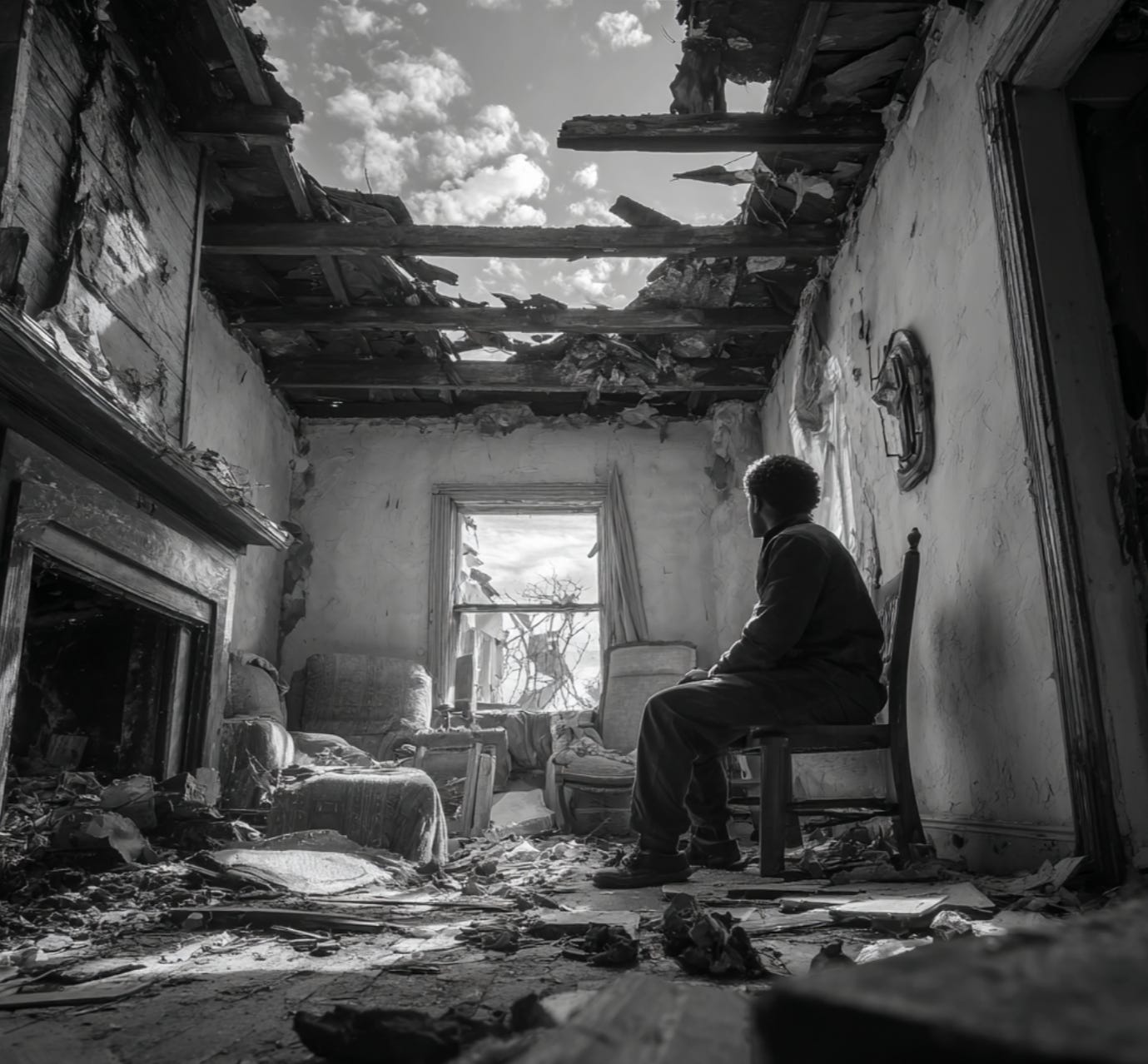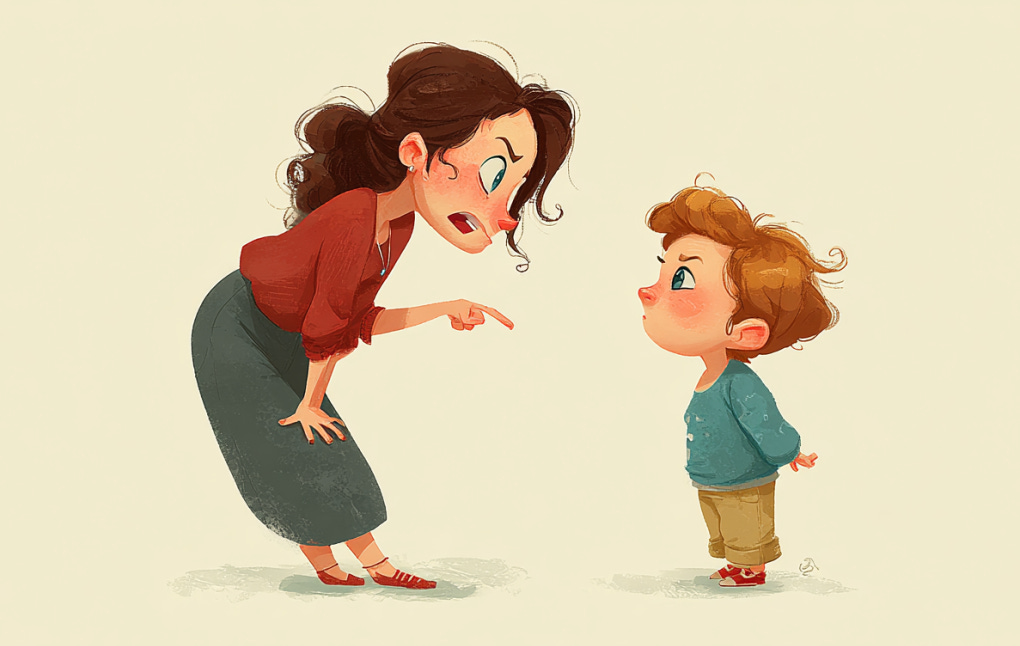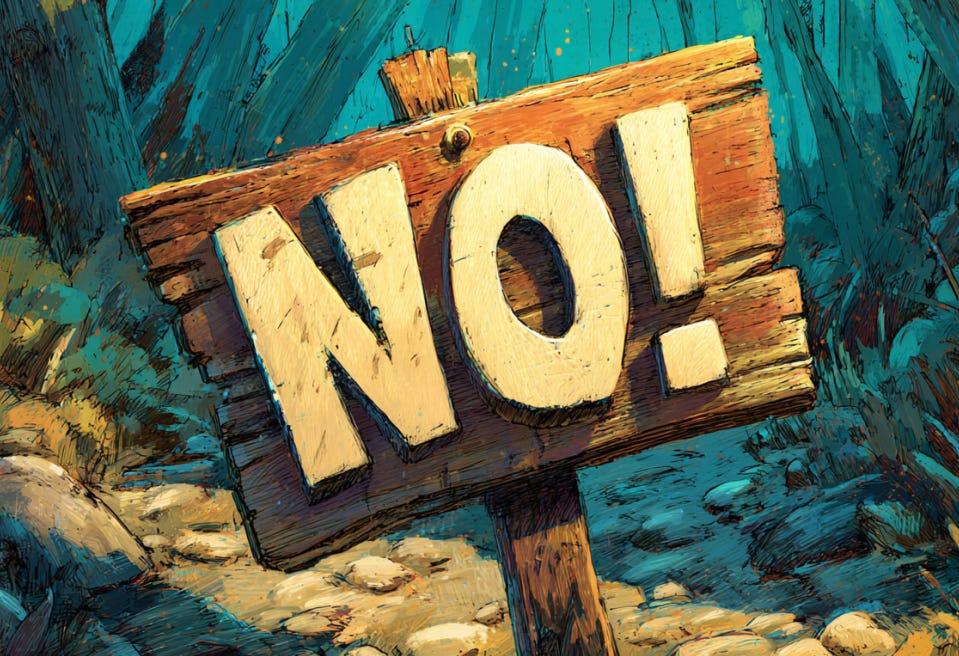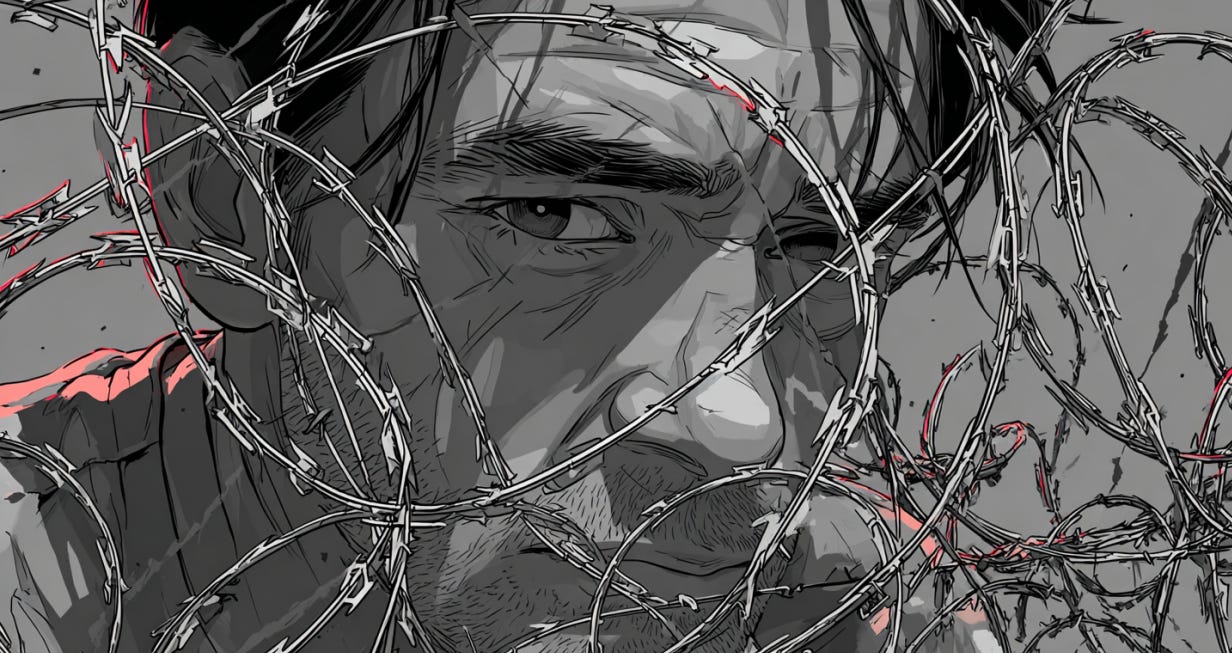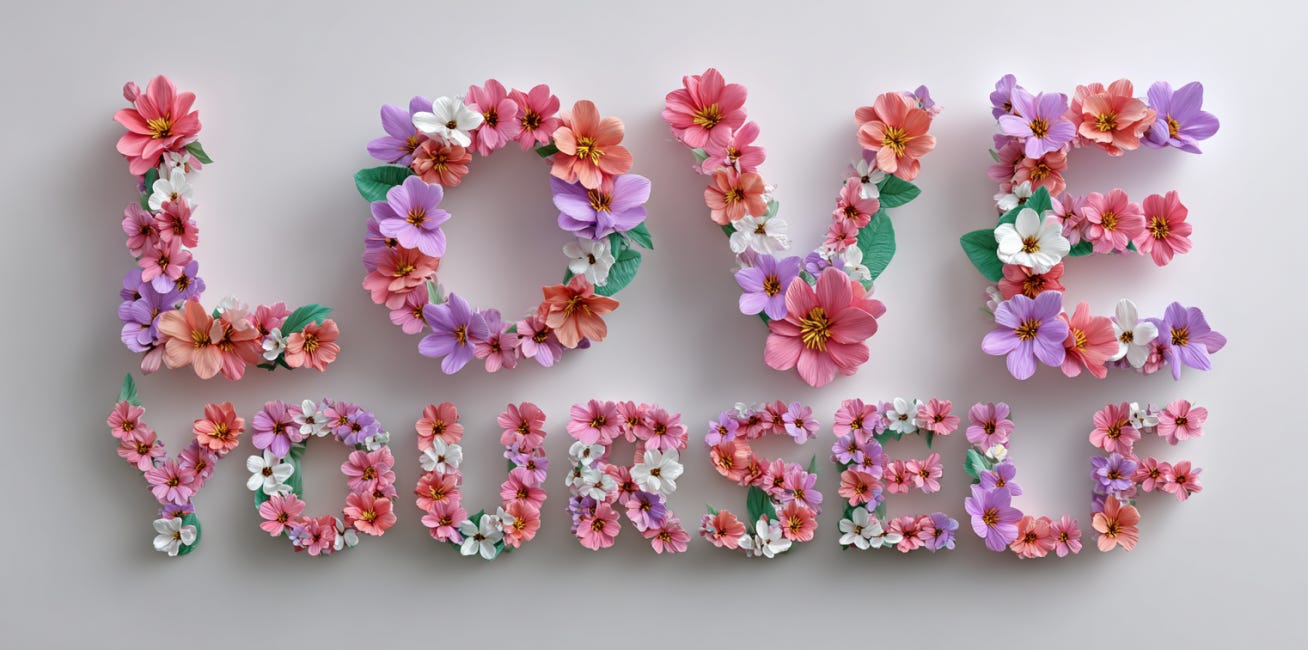Mindset is Everything
The need for adaptability, self-care, responsibility and forgiveness
If you find yourself needing to start over in life, then you are probably dealing with some of the following: shock, trauma, distress, losing your income, your home, someone you love, your health, or other devastating events.
You may be struggling with depression, health problems or PTSD as a result of what you’ve been through, and you may be feeling very alone and wondering if you can recover and ‘level up’ your life at all.
Think of your life as a novel, a thriller, a mystery, and you are the central character in the story. At this point, where your life has taken a devastating turn, your higher self, the reader, is willing you to get back up and overcome your difficulties.
Let’s finish this story of your life on a high note. Let your story be one of overcoming impossible odds, not merely to survive, but to thrive. Give your story an exhilarating ending.
You have what it takes. It may not feel like it, and you may not have many resources or skills to draw upon, but skills can be learned.
Resourcefulness matters more than resources right now.
Adaptability
I’m currently in the process of closing my company. One thing I’ve learned from spending 25 years running a company is that adaptability is essential for survival. Businesses which fail to adapt to changes in technology, culture, and market conditions will not succeed.
I’m sure we can all think of massive corporations that no longer exist because they failed to adapt to a changing market, where sales were shifting online, or new technology was making their way of working obsolete.
Life has always been this way, but the changes are accelerating now, and we must adapt quickly to the new challenges we face.
Change happens. Sometimes it is very unfair and even cruel, but we have to accept our new circumstances if we are to move forward.
We cannot change events that have already taken place, but we can change the story we tell ourselves about those events. In doing so, we change the impact those events have on us and the trajectory our lives take as a result of that impact.
So instead of telling ourselves, ‘No one will ever employ me now’, or ‘I’ll have to commute for several hours a day to a job I hate, just to pay the bills’, we can choose to think, ‘What if this is an opportunity?’
What if I start building a business at home, something I always dreamed about, but was too scared to risk losing my salary for?’ ‘What if I could create more wealth than I ever imagined was possible?’ ‘Others have done it, so why not me?’
Maybe your relationship has ended due to betrayal or abuse. Rather than telling yourself you’ll never be able to trust anyone ever again, or that you’ll never find love, consider this: What if this break-up has happened to serve your well-being?
What if you were settling for surviving in a relationship where you felt lonely, unloved, and disrespected?
What if this is your chance to learn to truly love yourself, so you never again settle for less than you deserve?
What if this is your chance to live life on your terms and make your dreams come true, rather than being a supporting act to someone who just used you to fulfil their dreams?
Take care of yourself first
You’ve spent so much of your life taking care of others. Now it’s time to take care of you.
Be gentle and understanding with yourself. Don’t bully yourself for finding it hard to cope.
Allow yourself to grieve the loss of your former life, and speak only kind, loving and hopeful words to yourself.
No one needs a bully, especially at a time like this, so be your own best friend - honest about what needs to be done, but prioritising your own well-being, and kind at all times.
Distance yourself from anyone who is not good for your mental well-being. When you are dealing with loss and grief, having people around you who add to your inner turmoil can cause you to tip over the edge into despair.
Protect yourself from them by not making yourself available to them. They may try to make you feel guilty about holding them at arm’s length. That’s not your weight to carry - it’s theirs. You come first now.
Childhood conditioning
You may have been taught, as I was, that your place in life was to be obedient to adults, regardless of who that adult was or what they were telling you to do. Such conditioning teaches you to override your natural intuition.
Your higher self, speaking in that quiet inner voice of gentle guidance, becomes drowned out by guilt and the fear of being punished for disobedience, so you go against its prompting to exercise caution and choose safety over obedience.
What followed for some of us was horrific.
Even when the consequences of choosing someone else’s voice over our own inner wisdom were not serious, we were being conditioned to second-guess ourselves and doubt our inner guidance.
That has continued into adulthood, and the greatest resource available to us —the inner wisdom from our higher self —gets ignored.
We need to learn to tune into that wisdom again. Set aside time to be still, journal, meditate and trust that you will get the insight you need.
That may not come as an inner voice; it might come in multiple ways and will be repeatedly confirmed. You don’t need to fear missing it.
Test it. Does it bring you peace? Does it feel right in your gut? Is it kind and loving? Then trust it.
I think one of the greatest gifts we can give children is to teach them how to recognise their inner wisdom and listen to it.
We all possess this ability, and it’s a natural instinct that we're born with.
If your inner wisdom has been violated so many times that you think it’s not there, then you can learn to hear it again. Sometimes it’s just a knowing; you don’t know why you know, you just do.
You need to test what you think you’re hearing, as well as test what others tell you to believe and do.
I have been slandered by people who were convinced God had told them certain things about me that were completely untrue. This has resulted in broken relationships, lost business and, in the case of a close relative, death from a stroke triggered by the distress their lies caused.
Listening to my inner wisdom has saved my life, protected my kids and led me to restoring my health, which I’d been told was not medically possible.
Responsibility
When I talk about the need to listen to inner guidance, I don’t mean for you to think you are incapable of making choices for yourself. This is your life, and it is about what you want to do with it.
How will we ever learn to grow in judgment and wisdom if we don’t experience learning through trial and error?
Time and again, I’ve sought guidance from my higher self on which income streams to prioritise, and time and again, I’ve received the same answer: ‘Try them out, and see what works’.
It’s not the answer I want; I want a shortcut to success, but we are here to learn and experience life. What would we truly learn if all we ever did was follow a set of instructions?
As a company director, I had a legal responsibility to make decisions for the company that were in the best interest of the company.
You cannot allow outsiders to make decisions for the company, although you do, of course, listen to guidance from accountants, tax advisers, technical experts and lawyers; as a company director, you get the responsibility of overseeing the decision-making.
We should adopt the same attitude towards our lives; we can listen to guidance from others, but it is our responsibility, and ours alone, to decide whether or not to implement that guidance.
Be wary of those who tell you to submit to their authority when it comes to your personal choices (the fact that you need to comply with laws is a given).
It is your human and God-given right and responsibility to get in the driving seat of your life. It is not for any boss, religious leader, spouse, friend, or adult child to hijack your life and take it where they see fit.
If what others tell you to do does not resonate with your inner wisdom, then don’t implement it. If they are right, you will get confirmation from your higher self, and you will feel at peace about it.
The only people who will be offended by you saying ‘no’ and setting boundaries are those who have their own agenda for your life and feel entitled to control you, for their own benefit, at the expense of your well-being.
The choices of others may have caused a catastrophic derailment of your life, but it is your responsibility to take control of your life and rebuild it as you see fit.
Never wait for others to apologise. That apology may never come, and you are only harming yourself by needing it.
If you need an apology, then the person who hurt you is still taking up room in your mind, triggering anxiety and other negative emotions.
Let it go, and love yourself enough to meet your own needs and choose not to see yourself as dependent on others changing first.
Fairness
We seem to be born with an innate expectation of fairness. We can see this even in animals.
Years ago, my son and his girlfriend each had a cat, Cat and Billy. I was feeding them for a few days. Billy had food from sachets, and Cat had food from a tin. Cat thought this was unfair.
Her face was a picture of anger and resentment at being given what she thought was second-rate food compared to Billy, and she bit me to let me know it was unfair and refused to eat her food.
When siblings are treated differently, it often results in cries of ‘that’s not fair!’ followed by a comparison of how they have been treated differently.
So, when we are badly wronged, our first instinct may be to want the person who harmed our life to fix it, because what they did to us was unfair.
Stop and think about that for a minute. If you had a builder make such a mess of your house that it collapsed, would you really want or trust that same builder to fix it?
No, you’d want an expert you could trust.
So who is the expert in ‘you’?
You are! You know how you really want your life to be. So get in the driver’s seat of your life and take yourself there.
Forgiveness
We’ve been led to believe that forgiveness is about what you do to benefit the person who has wronged you in some way. That you are wiping their slate clean, as though they never did anything wrong.
That feels grossly unfair. It’s like another slap in the face while you are still reeling from the first punch.
We want some higher power to make it fair for us. To mete out justice, so that the perpetrator feels ashamed of what they did to us and faces some kind of Karma. We want them to feel the same emotions we experienced.
Obviously, if the harm against us has been serious, then I am not ruling out the need for civil or criminal justice. But what I’m addressing here is what happens inside us. The legal system can’t fix that.
I think forgiveness is for our own mental well-being and has little to do with the person who caused our pain.
The people who genuinely want our forgiveness are often so appalled at what they’ve done to us that we know it wasn’t intentional. It’s not hard to love these people, and our feelings towards them don’t cripple us emotionally.
Those who intentionally harm us don’t care if we forgive them. Our feelings didn’t matter to them before, and they don’t matter now. They don’t lose sleep over what they did. They might even be gloating over our downfall. So is there a point in forgiving them?
Forgiveness is about you. It was never about them. It’s about what happens to you inside if you can’t forgive.
The late archbishop Desmond Tutu once said that unforgiveness was like drinking poison and expecting the other person to die.
Unforgiveness turns us into people we’d rather not be.
It makes us unhappy because our happiness becomes dependent on someone who doesn’t care about us. We become enslaved by our thoughts about them. We become unable to let go of the pain and move forward with our lives.
Grieving a loss is healthy. It’s part of the healing process that enables us to move on. Unforgiveness is unhealthy; it traps you in a spiral of negative emotions that you cannot escape from until justice is done.
However, the truth is that nothing can make right what they did, so we will never truly feel like we have justice. Even if the other person came to the same harm they caused us, or went to prison, it still doesn’t fix the harm they did to us.
It’s as though they wrapped us up in razor wire and every attempt to move on causes us more pain, more cuts and more bleeding.
We need to take the wire cutters of forgiveness and cut away every negative emotion that remains attached to that person, so that our thoughts about them can no longer hurt us emotionally.
Protecting yourself
Forgiving someone does not mean you continue to allow them access to you or the people you love. Nor does setting boundaries or cutting someone out of your life prove that you haven’t really forgiven them.
I recently saw an article about a woman who had forgiven her mother’s killer. Then, she allowed that killer to live in her home. Inevitably, he killed her too.
I have often seen in religious settings that people believe forgiveness is wiping a person’s slate clean to the extent that it’s as though what they did never happened.
So they don’t exercise caution or are even reckless with the lives of others. I’ve seen church leaders place someone they knew to be a paedophile in the home of a young family who didn’t know what they were saying yes to when the leaders asked them to give the man a place to stay.
I also discovered, after the event, that a church brought a group of paedophiles to a massive multi-church event, where families were camping for the week and children roamed freely because parents assumed they were safe among Christians.
Forgiveness is not about being blind to someone’s character.
Maya Angelou said, ‘When someone shows you who they are, believe them the first time.’
If someone has intentionally caused you or your loved ones serious harm, then they have shown you who they are.
They have shown you that they lack integrity, that they are unkind, that they aren’t trustworthy, and that they don’t qualify to be in your close circle of people with whom you share your heart and life.
Never be manipulated with guilt into letting someone back into your life who has proven themselves to take pleasure in harming others.
Someone once said to me, ‘Be friendly with many, but make friends of few.’ That was wise advice. You can afford to be kind and friendly to most people, but be very careful about who you give power to speak into your life or trust with your heart.
True friends, who offer love and support when life knocks you down, and are genuinely happy for your wins, who can be trusted with information you wouldn’t want to be public knowledge, who are honest with you and kind at the same time, these people are priceless.
It is a mistake, though, to think that you can trust everyone you are friendly with to the same extent. Oversharing with people who are not worthy of your trust can lead to betrayal and harm.
Whether or not you are fortunate enough to have true friends at this time, you have yourself, and in the words of Miley Cyrus, in the song ‘Flowers’, ‘ I can love me better than you can’.



